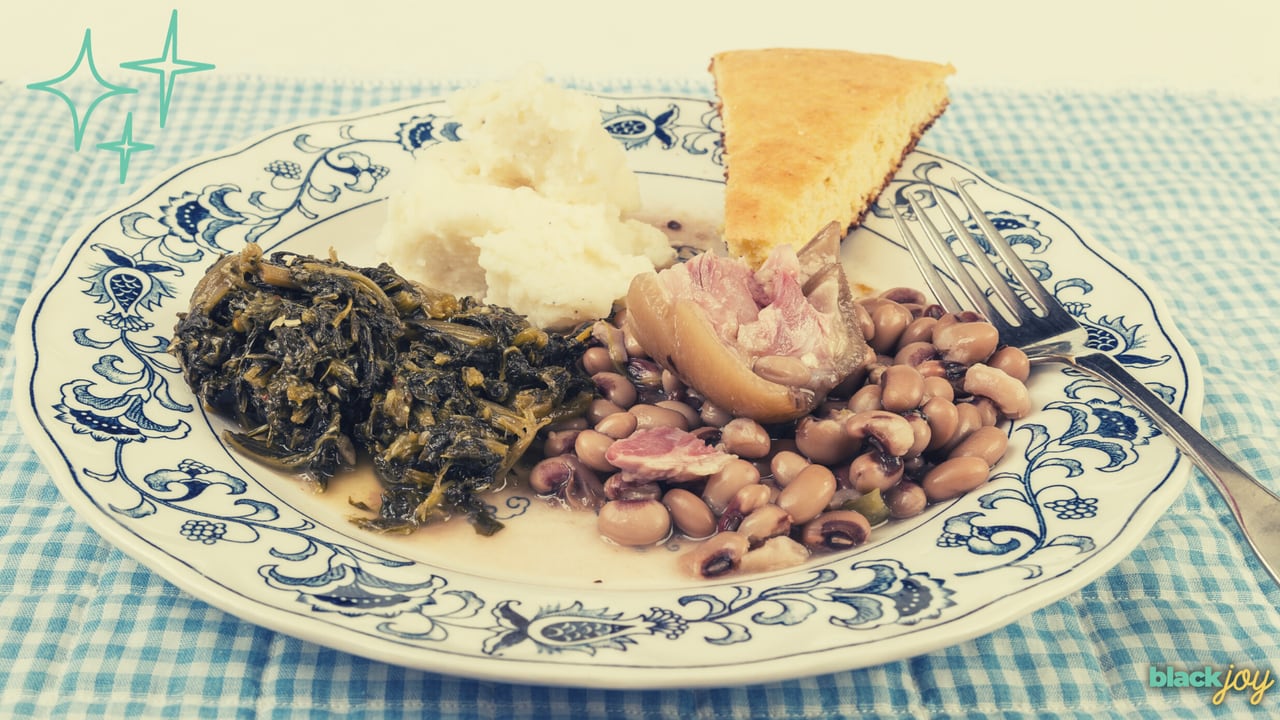Shaming the way Black folks eat wonât get us free
It was 2014 when I decided I was going to become a vegetarian. I was in my junior year of college, and I was trying to commit to a healthier lifestyle. It wasn’t until two years later that I abandoned that diet for something that felt closer to home. Home, for me, was the healthiest option. Yes, I grew up eating fried chicken, turkey necks, pork chops. But in addition to that, fresh collard greens grown in a neighbor’s garden, sliced lightly salted tomatoes and green beans. With every meal my grandma cooked, having at least one vegetable was a must. And yet, the stigma with Black food is that it is inherently unhealthy. It is, according to some folks, nothing more than the scraps our enslaved ancestors were given.
Somehow, the anti-Blackness that undergirds that idea is lost on many of us.
Oftentimes when people push the notion of Black food as “slave food” what they are really talking about is Southern food. And the villain is usually pork, in all its iterations. As someone who limits their intake of pork, I don’t think Black folks or any other group of people who incorporate pork in their dishes should be shamed for it. More importantly, when watering down Black food to a single narrative, we are being wholly inaccurate about the history of Black Foodways.
In “Eating While Black: Food Shaming and Race in America” Psyche Williams-Forson discusses the ways food was weaponized by white enslavers, but she notes, “it was also used by African American to push back with fortitude.”
One thing that Williams-Forson cautions against is Chimamanda Adichie’s concept of the “single-story,” and that is, as mentioned earlier, associated with assigning a one-dimensional narrative to our food history.
“Because of the lack of knowledge, [we believe] that all black people ate scraps, all black people have eaten foods the same way. And that’s just not true. It’s not true even in terms of geographical location,” Williams-Forson tells me during our conversation around food shaming in Black communities.
These misconceptions not only discount regional differences, but it erases the ways Black folks resisted by creating their own rich culinary traditions with the resources they had, even and especially during slavery.
As highlighted above, the history of our relationship to food as Black Americans is a lot more nuanced than “the slave master fed us scraps.” Single-story narratives have long been used as a tool of dehumanization against Black folks and to justify our inferiority. So, at its core, denigrating Black food and ultimately the ways our ancestors acclimated to unreasonable conditions to sustain themselves reinforces anti-Black racism.
To further the stigma, health disparities in our communities are often attributed to our “unhealthy” food. It is true that Black Americans have disproportionately higher rates of ailments such as hypertension, diabetes and heart disease. But that fact cannot be boiled down to the food we eat. Health outcomes are impacted by several factors, including but not limited to, stress, economic instability and inadequate healthcare. However, if we’re going to talk about unhealthy food as one of the culprits, we have to also discuss food deserts that plague poor Black communities.
Again, this all comes back to the single-story. Our past and present-day relationship to food (and health) is not only a lot more nuanced, but also much more abundant.
Another side of the Black food conversation takes us back to the land, back to the times where many of our living elders and not-so-distant ancestors grew their own food. Despite Black folks’ complicated relationship to the land on account of white supremacist violence, we have been able to reclaim it as a means of sustaining our families and communities. That legacy is one that has not been lost and we see it continuing in organizations like the National Black Food and Justice Alliance (NBFJA). This alliance consists of Black urban and rural farmers, organizers, and land stewards across the country working collectively to protect Black land and work towards food sovereignty.
LeeAnn C. Morrisette, the NBFJA Communications & Culture Director, highlights how that looks in practice:
Another story to consider in lieu of the single-story: making healthy food accessible in Black communities is an intricate part of our struggle for liberation. A lot of that struggle looks like reshaping our relationship to the land and creating sustainable food systems in our communities. Maybe more importantly, though, is the immense joy that can come even in the midst of that struggle.
“There is joy, but the joy comes through the struggle. . . I don’t want to minimize the amount of intimacy that is required to create what we’re creating in the world and that intimacy requires grief, joy, pain, beauty, anger, all the things that we’re doing, but we’re doing it together, we’re struggling together through it. And I think that’s part of why the joy is so overwhelming is because there’s a commitment to struggle together,” Morrisette says.
Alongside that is the joy that is possible when we think of our food traditions as an extension of our most resilient and resourceful ancestors. That is not to say that we all must eat one way. It is to say, the way we eat, the way we relate to food is expansive and honoring that will get us a little bit closer to a more abundant, well-fed and freer future.
Want to learn more about the history of Black food and land sovereignty? Check out our Food & Land Sovereignty Reading List on the Black Joy Bookshop!
